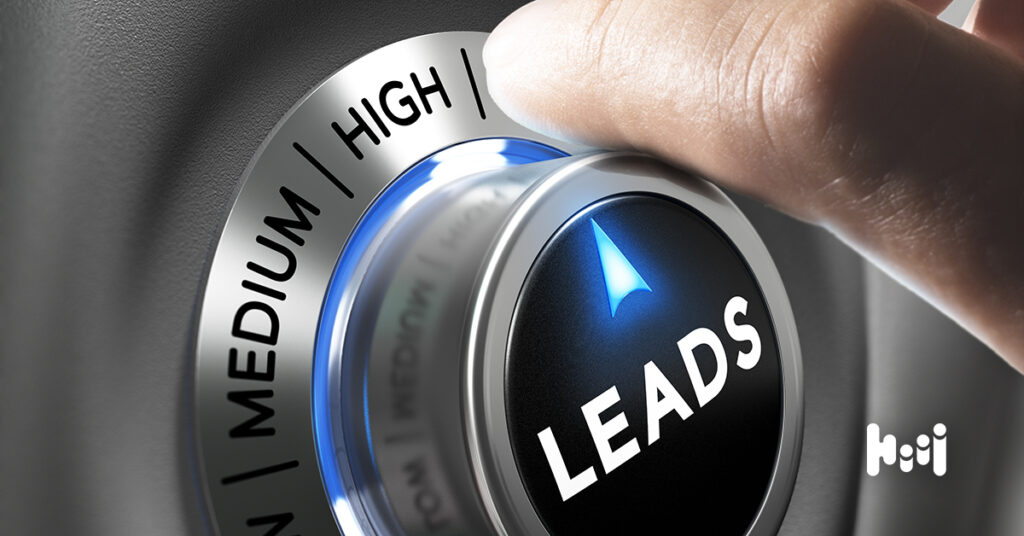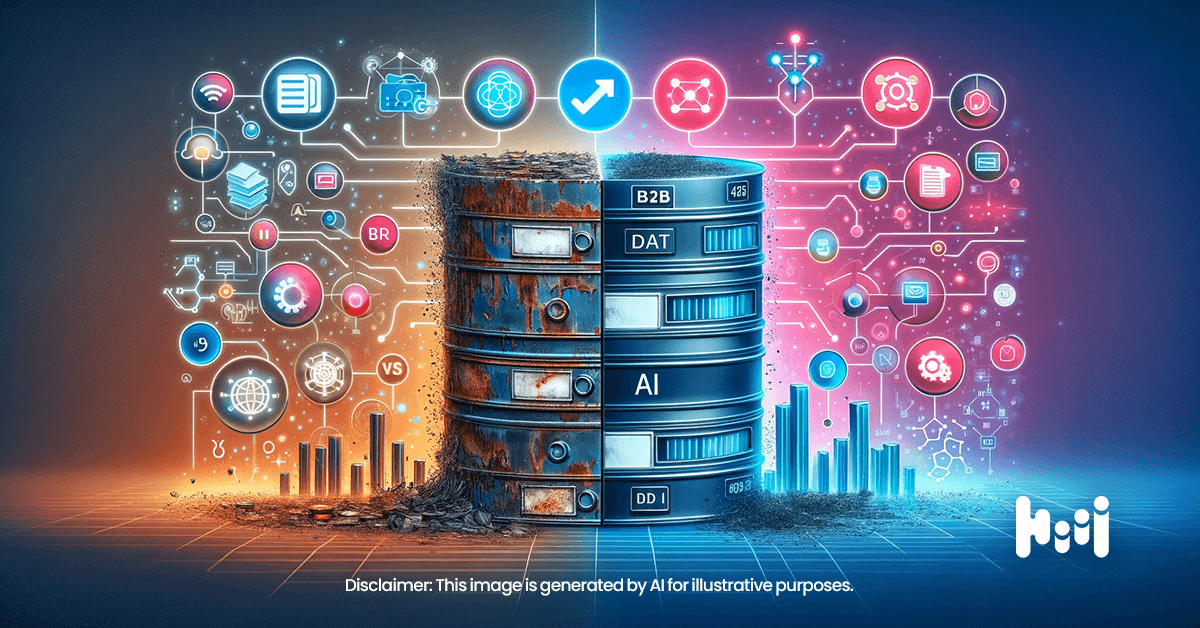
Ninety-one percent of companies with more than 10 employees use a CRM system to store customer and prospect data, collected over time from a variety of first-party and external sources. Chances are, however, that most of that data has been sitting there, forgotten, since it was first imported.
The best B2B CRM solutions allow sales and marketing teams to easily access and organize vast quantities of highly useful data that could be used to get new leads or provide a great customer experience. That’s why 70% of sales people consider their CRM systems crucial for closing deals.
For marketers, CRM is among the top three tools for creating personalized interactions with customers to foster loyalty and establish a higher marketing ROI. In fact, 50% of businesses use their CRM platform for email marketing, and 44% of businesses use their CRM platform for marketing automation integration as well as for lead scoring.
But, if most of the data within your CRM system isn’t accurate, any value quickly goes right down the drain.
How Important is Data Accuracy?
Very. In a recent CRM and data management study, 45% of participants rated the overall quality, accuracy, and usefulness of their CRM data as poor. Issues with data accuracy can negatively impact your team in many ways, including poor lead quality, disappointing conversion rates, and even 10% lower annual revenues. Nearly three-quarters of companies say that data quality issues have impacted their trust and perception among customers.

Maintaining accurate data has many benefits, including increased productivity, lowering overall costs, and enabling better decision-making. Here’s how those benefits translate into tangible results for teams and companies:
- Marketing departments can launch more relevant campaigns and accurately target communications across channels. Accurate data helps deliver the right message, to the right person, at the right time and on the right platform—improving the odds that the prospect will convert to a lead.
- Sales teams can be more informed when speaking with prospects, making it easier to nurture them further down the funnel and improve conversion. Accurate data also helps increase customer satisfaction by providing a more personalized experience, which translates into better loyalty and increased sales.
- Companies can better adhere to consumer data privacy laws (like CCPA and GDPR) and support compliance efforts—something for which every company that collects and stores sensitive customer data is held accountable. Accurate data makes it easier to run compliance reports (and to find required information if audited) to avoid fees associated with non-compliance.
How Can You Improve Data Quality?
This is where data enrichment comes in. Data enrichment is the process of expanding the data you have in your B2B CRM system with additional, relevant info—such as company address, industry sector, job title, phone number, and email—typically found via third-party sources. (Note: data enrichment should not be confused with data cleansing, which is the process of deleting incorrect, irrelevant, or duplicate data and should be done prior to any enrichment.)
Data enrichment is a critical process for any B2B sales and marketing team. Data enrichment helps marketing teams segment audiences to develop highly-targeted, personalized campaigns with pinpoint accuracy, stoking the funnel with engaged buyers. Data enrichment also helps sales teams feel confident that the CRM data they are accessing is high-quality, complete, and up-to-date. Data enrichment can even boost closure rates by as much as 152%!
As the saying goes: garbage in, garbage out. If you start with good quality data, your decisions will be more informed, communications will be more relevant, processes will be more efficient, and outcomes will be more favorable. Data enrichment supports all this.

How Can You Enrich Your CRM Data?
Getting the right data into your B2B CRM requires a collaboration between sales and marketing teams. Improving B2B lead quality by identifying purchase-intent and other qualifiers will naturally increase opportunities for conversion. Data enrichment is an important step in this process.
It’s worth noting that data enrichment is not a one-and-done project; it must be conducted regularly to keep data fresh within your CRM. Sometimes referred to as “data appending,” this process can be managed in one of three ways: manually; using software; or via a service. Manually enriching your CRM data may yield the most accurate result, but it’s extremely time consuming and inefficient for companies to take on themselves. Using technology can help speed things up; if going this route, look for tools that include social listening, AI, and customization.
Another option is using a service partner like DemandScience for your data enrichment needs. This takes the guesswork out of finding the right tool and the heavy lift out of building a qualified pipeline. A data enrichment partner will regularly refresh account and contact-level data, confirm connection information, provide insight into intent, and track technographic profiles. Think of it as a way to automatically keep your CRM up-to-date so you can focus on doing what matters most—connecting with customers and prospects.
Relevant, Recent, and Complete Data
Accurate data is the hallmark of creating a good customer experience. With regular B2B data enrichment, you can better equip your sales team to nurture leads, provide a better CX, and close new deals.
Think of how much more effectively sales teams could work if they had all the right data at their fingertips and didn’t have to go searching for it? DemandScience is here to help. We can supply relevant, recent, and complete data to enrich your B2B CRM strategy and upgrade your sales pipelines.
Learn how to make the most of your CRM database through intent-driven demand generation data in this free whitepaper.










